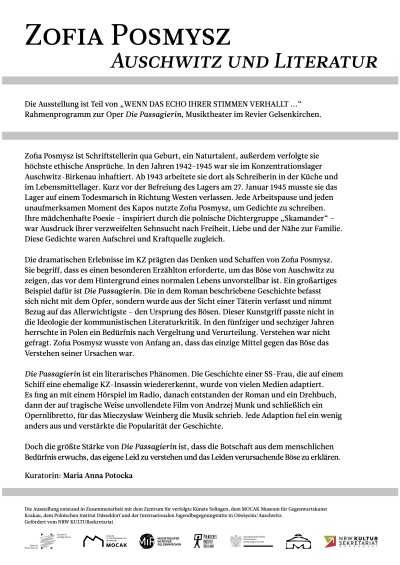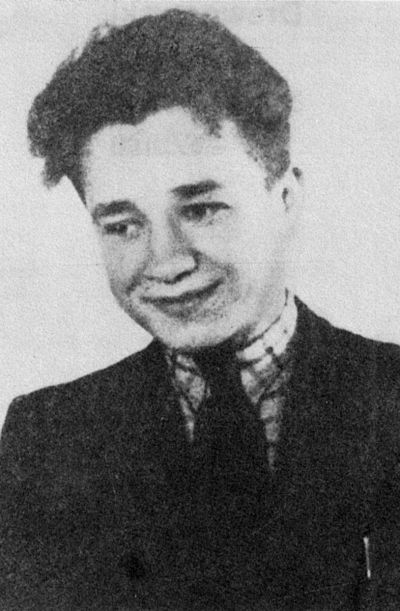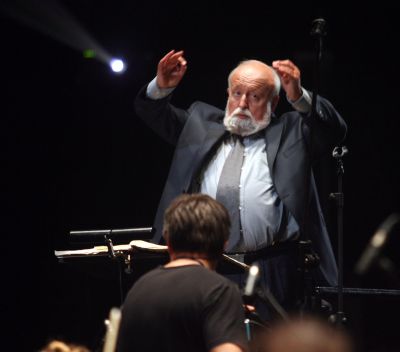Opera as a place of memory. “The Passenger” by Mieczysław Weinberg. 2017 in Gelsenkirchen

It is a superhuman artistic challenge to transfer the cruelties of what was probably the largest consciously organised mass murder in the history of humanity, to the stage in the form of an opera. But the author, herself a survivor of Auschwitz, wanted to keep alive the memory of the atrocious deeds and simultaneously send us a reminder in a living place of memory. These considerations clearly weighed more heavily than the fear of the problems involved in translating the events into a literary and theatrical form.
The Polish Jewish composer, Mieczysław Weinberg (Polish: Wajnberg), fled to exile in Russia after the Germans invaded Poland in 1939, and lived in Moscow until his death in 1996. On the advice of Dmitri Shostakovich he chose to adapt the novel “The Passenger” (“Pasażerka”, Warsaw 1962), by the Polish writer Zofia Posmysz, for an opera of the same name. Shortly afterwards the Russian translation appeared in the periodical Inostrannaja Literatura. It portrays the memory of Auschwitz from the perspective of a culprit and this was probably the decisive reason for Weinberg to select the story. This utterly new view of events in a concentration camp made Zofia Posmysz famous. In 1963 the novel was filmed by Andrzej Munk in Poland and was subsequently used as a template for a number of opera and stage productions.
Although Zofia Posmysz agreed to a libretto being based on her book, she left this to Alexander Medwedew and Juri Lukin who did not keep strictly to storyline in the novel. Walter, a German diplomat, and his wife Lisa, have just set sail in a luxury liner for Brazil where Walter is due to take up a new post. They are both looking forward to a new and happy life and regard the cruise as a “second honeymoon” until their idyll is brutally interrupted by another passenger Marta. Lisa recognises Marta as one of the people she supervised in the concentration camp in Auschwitz, where she was only “doing her duty” as a warden. Nonetheless Lisa has always kept this episode in her life secret from her husband. The memories of the concentration camp are skilfully and excitingly woven into Lisa’s suspicions and fears that Marta might have recognised her once again. At the start, whilst she had been one of Marta’s supervisors she had treated her relatively humanely. But in the final analysis she remained more than true to the Nazi ideology by denouncing Marta’s fiancé Tadeusz, after they came across each other in the camp quite by accident. After witnessing their reunion Lisa sent Marta to the death block.
The dramatic tension in the opera grows as the size of the crime becomes increasingly clear. The score and the descriptions of the sufferings sung by the women prisoners one after another in German, Polish, Russian, French, Czech, Yiddish and English are shattering. The role of Tadeusz in Gelsenkirchen was sung by the Polish baritone, Piotr Prochera, and had a particularly striking and authentic effect on the audience.







